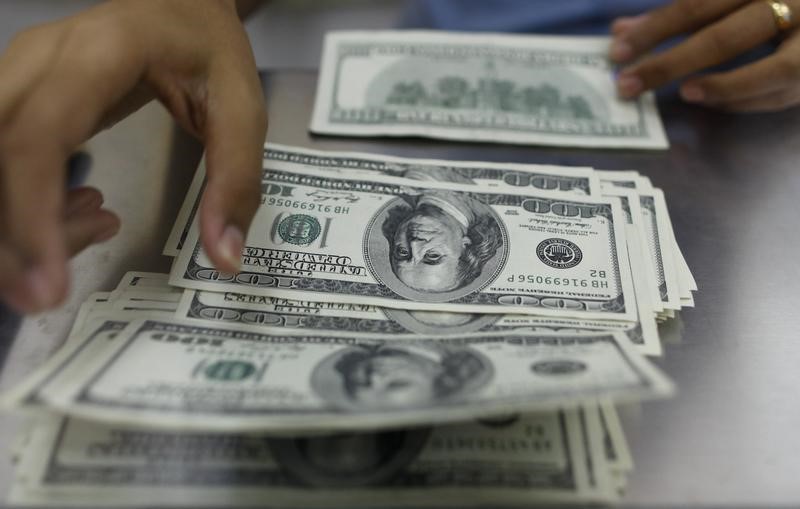Investing.com - The dollar was little changed against a basket of the other major currencies on Thursday in the wake of relatively dovish Federal Reserve minutes and remarks by U.S. Treasury Secretary Steven Mnuchin.
The U.S. dollar index, which measures the greenback’s strength against a trade-weighted basket of six major currencies, was at 101.32 at 09.04 GMT.
The index moved in a range of a one-week high of 101.72 and a low of 101.16 on Wednesday.
The dollar initially rose after Wednesday’s minutes of the Fed’s February meeting said it may be appropriate to raise rates again "fairly soon" if jobs and inflation data continues in line with current expectations.
But the minutes also noted uncertainty over a lack of clarity on President Donald Trump's economic policies and pointed to the risks to the growth outlook from the stronger dollar.
Expectations for a March rate hike had mounted after Fed Chair Janet Yellen said last week that a rate increase would be appropriate at one of the forthcoming meetings.
The dollar received an additional boost overnight after U.S. Treasury Secretary Mnuchin praised the currency's strength as a reflection of confidence in the economy and a "good thing" in the long run.
The dollar dipped against the yen, with USD/JPY easing 0.13% to 113.16, off an overnight high of 113.45.
The euro was steady, with EUR/USD at 1.0554, off the six-week lows of 1.0492 set on Wednesday.
The euro found some support on Wednesday as fears over the outcome of France’s presidential election eased after French centrist politician Francois Bayrou said he would not run and instead pledged to support independent candidate Emmanuel Macron.
If Bayrou had run he would likely have taken some support from Macron and increased the chances of anti-European Union Marine Le Pen winning the presidency.
Investors’ fears that a victory for far-right Le Pen, who is the front runner to win the first round vote, could potentially trigger the country’s exit from the euro area.
Sterling was almost unchanged against the dollar, with GBP/USD at 1.2461.
Meanwhile, the Australian dollar was slightly weaker, with AUD/USD slipping 0.12% to 0.7692 after domestic data pointing to a faster than expected slowdown in capital spending in the fourth quarter.
